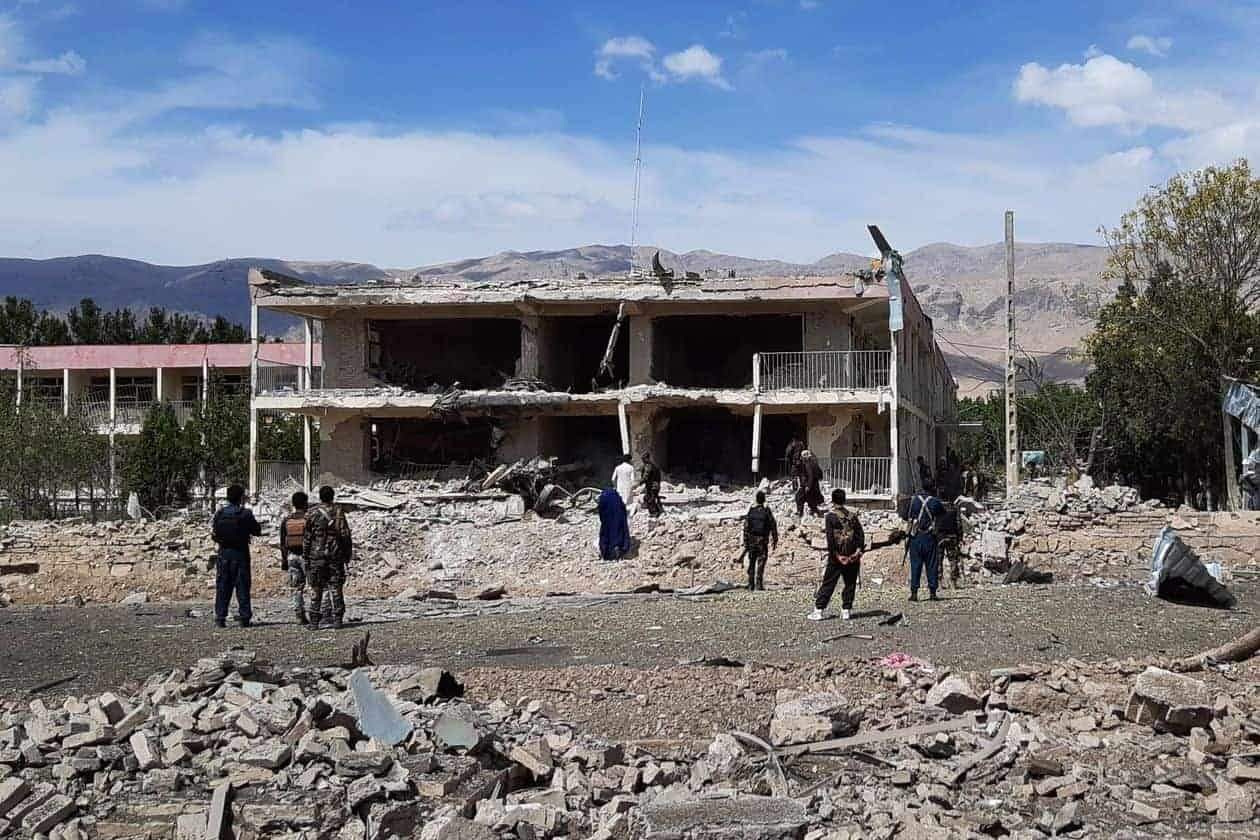New Taliban Attacks Complicate Afghan Peace Process

A Taliban attack on a government intelligence headquarters in northern Afghanistan killed 11 security forces and injured dozens of civilians, further straining a peace process meant to pave the way for a withdrawal of American troops.
The militants detonated a car bomb Monday morning in the city of Aybak in Samangan province outside a base belonging to the National Directorate of Security, Afghanistan’s spy agency. Following the blast, two insurgents entered the compound and exchanged fire with security forces, according to the deputy provincial governor Sefatullah Samangani.
Mr. Samangani said 11 security forces and all three attackers were killed and at least 63 people, mostly civilians, were injured in the hourlong assault. The explosion from the car bomb shook the city, said Ali Akbar Farhang, an Aybak resident. “Windows near the blast scene are completely shattered,” he said.
The Taliban claimed responsibility for the attack. The assault caps a bloody 24-hour wave of violence across northern Afghanistan, where Taliban insurgents killed at least 25 government forces in separate attacks on security posts in Kunduz, Badakhshan and Parwan provinces, according to government officials.
The successive Taliban attacks come amid a stalled peace process between the Afghan government and the Taliban, which was intended to follow a preliminary agreement in February between the U.S. and the insurgents. Now with peace talks faltering, and violence escalating as the government struggles to respond to the coronavirus pandemic, Afghanistan risks sliding into chaos.
Afghan President Ashraf Ghani said Monday that the Taliban sought to gain advantage in the negotiations by attacking government forces. “The terrorist attack on Aybak city indicates that Taliban still adhere to violence and pursue war,” Mr. Ghani said in a statement.
In keeping with President Trump’s call to draw down American soldiers from Afghanistan, the Pentagon is preparing plans for a withdrawal before the U.S. elections in November—even as some caution that a hasty U.S. pullout risks eroding gains and empowering insurgents.
“Taliban’s insistence on continuous violence is jeopardizing the unique opportunity for peace,” NATO’s Senior Civilian Representative to Afghanistan Stefano Pontecorvo said on Twitter following the attack. “I call on [the Taliban] to cease bloodshed & engage constructively at the negotiating table.”
As part of the February agreement between the Taliban and Washington, the Afghan government and the insurgents would begin negotiations within 10 days over a future power-sharing agreement to reach a solution to the 19-year war.
The talks have been delayed, however, due to disagreements over another clause in the accord: a swap of 5,000 Taliban prisoners for 1,000 security forces held by the insurgents. The Taliban has so far released over 600 prisoners, while the government after freeing 4,200 fighters has asked the militants to propose new names to replace hundreds of prisoners it says are too dangerous to release.
The peace efforts have been further complicated by revelations that Russia has paid bounties to Taliban fighters to kill American soldiers, sowing doubt about the militants’ willingness to let foreign backers disrupt the reconciliation process.
The February deal with the U.S. didn’t commit the Taliban to a cease fire, but American officials have said they had reached an understanding with the insurgents of a mutual 80% reduction in violence for a week following the accord.
Since the deal was signed, violence in the country has remained nearly at 2019 levels, with roughly 5,500 security-related incidents from February to mid-May, according to the latest tally by the United Nations in Afghanistan.
The latest Taliban attacks shouldn’t be seen as a death knell for the peace process, according to Barnett Rubin, an expert on the Afghan peace process and associate director of the Center on International Cooperation at New York University.
“Wars end after a peace process succeeds, not as a precondition for starting it. And war means killing the enemies to try to force them to surrender something,” Mr. Rubin said. “This incident won’t change anything. It just demonstrates the urgency of starting the negotiations and pursuing them seriously.”
Photo: This base belonging to Afghanistan’s spy agency was targeted by insurgents with a car bomb. - PHOTO: AGENCE FRANCE-PRESSE/GETTY IMAGES
Link: https://www.wsj.com/articles/new-taliban-attacks-complicate-afghan-peace-process-11594654731











